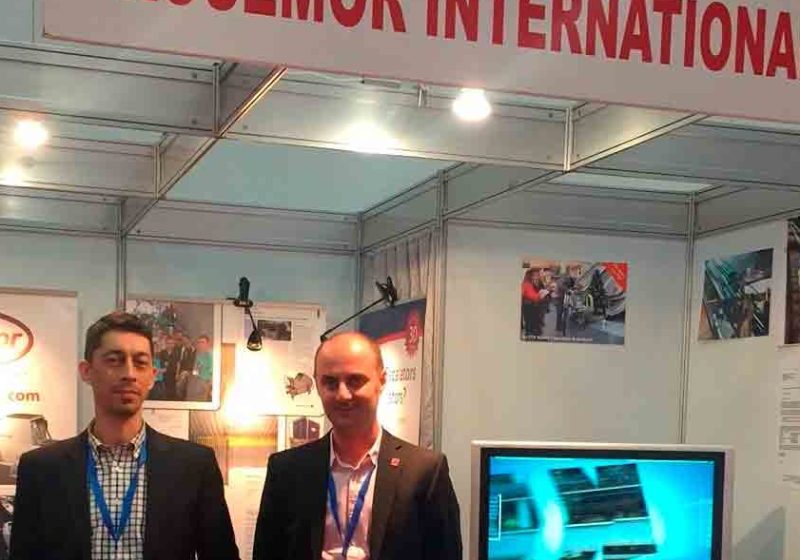In this Readers Platform, your author answers some key questions.
Avoiding litigation these days is not easy. Sometimes the net is cast wide enough in civil litigation, particularly in the vertical-transportation (VT) industry, that even individuals and companies not part of a litigated dispute often find themselves having to respond to subpoenas for records or testimony.
If a subpoena is served upon you or your company as a “non-party” to a case, how should you respond? Each situation is different, of course, but ignoring a subpoena is not advisable. A valid subpoena is an official request authorized by a court which demands something from the recipient, and it must be treated that way. Indeed, avoidance may result in more court involvement, and continuing avoidance could even lead to a contempt hearing for you or your company. It is, therefore, vital that, if served with a subpoena, you consider hiring a civil litigation attorney, preferably one who has knowledge of your business or industry, to properly advise on your options and next steps.
Given the variety of organizations that serve the VT industry, myriad entities could receive a subpoena on any number of subjects. Equipment manufacturers, service companies, component suppliers and integrators, developers, general contractors, architects, mall owners and operators, condominium associations, consultants, municipalities, inspectors, unions and industry insurers could all potentially receive a subpoena for records or testimony, and the subject matters are limitless.
Subpoenas are usually drafted by attorneys hired by the parties in a lawsuit and often request documents or testimony related to a case or matter in which you or your organization were sufficiently involved to make evidence or knowledge you possess relevant. However, many subpoenas are so broadly written that compliance will impose substantial burdens of time and expense.
Unfortunately, recourse against these burdens is to either incur the time and expense of compliance, or spend money on counsel to intervene, file objections or assist in responding. The following are tips to use when responding to a subpoena for either records or testimony in a civil court case. Keep in mind that every state and every matter is different. These recommendations are confined to general principles in civil actions.
I’ve received a subpoena. How do I know if it’s valid? Generally, without attorney review, you would not know if the subpoena is invalid, except for obvious defects — for example, if it was served on the wrong company. But, before responding to any subpoena, take steps to determine if the document itself is technically compliant and establishes your legal obligation to respond. Every subpoena must comply with certain legal requirements in format, how it is issued and upon whom it is served. Each state has different rules, so in the event you are served with a subpoena you do not believe is proper, consult with a lawyer.
The vast majority of subpoenas meet the legal requirements for serving them. Assuming the subpoena is valid, you have two legal options: respond as directed or contact the lawyer who issued the subpoena to discuss compliance or resolve any questions you may have about what is really being asked.
Document subpoenas often ask for more than a party really needs in the case. Some call that a “fishing expedition” to see what a wide net might turn up, well beyond the actual “needs” of the case. A broadly written subpoena, or one that requires compliance in a very short timeframe, does not, in itself, render a subpoena invalid. If uncontested, however, it could impose a significant and onerous burden upon the non-party. A phone call to the person or law firm who issued the subpoena may help narrow the issues, reduce any burdens on your organization and get an extension of time, if necessary.
What’s reasonable for a subpoena to request? The scope of discoverable information you can be compelled to provide as a non-party is usually limited directly to the matter at hand and your organization’s role in it. Relevant documents in personal-injury lawsuits, for example, may include contract information, maintenance and call-back records, modernization proposals and other correspondence with a party in the lawsuit. Remember, this will include both paper and digital records.
If not directly related to the litigated matter, a non-party’s financial records, trade secrets or other sensitive business information is usually considered irrelevant, and disclosure may not be required. As “unwilling participants” to litigation, non-parties are afforded a higher level of protection and privilege, so sensitive or proprietary business information may be protected under trade-secret privilege or, perhaps, a work-product privilege that may not be applicable to involved parties.
If you believe a subpoena intrudes on sensitive business information — for example, a list of your service-contract customers in a major city — contact the issuing party to eliminate that requirement or seek legal advice on your options.
What does it mean to be “overly broad” or “burdensome?” A party is generally not required to respond to a subpoena by producing documents it does not have in its possession. If potentially responsive documents are available only from a third party, the non-party has no obligation to purchase or source such documents to respond. For example, original permit applications may not be in your “construction” file. If, to respond to a subpoena, a party would be required to create documents, purchase copies of documents, or hire and pay for an outside party to research and copy its own records, that could be considered objectionably “overly broad” or “burdensome.”
Subpoenas often seek paper and digital records related to projects or equipment long in use. Document subpoenas should have a timeframe pertaining to a specific matter, be it an accident, contract performance or collection of a debt. In a personal-injury matter involving an elevator, for example, a request for service records more than three years prior or more than a year after an accident could be considered overly broad.
Some states have limits on what can be requested. If you question whether a subpoena is overly broad or burdensome, and an informal request to narrow the subjects or timeframe is not productive, contact an attorney to discuss your options, including serving legal objections to the subpoena.
Providing documents can be costly. Who pays? This depends on the jurisdiction. Most states do not automatically permit a non-party to charge for personal time incurred in responding to a subpoena. However, many states have rules that require the party issuing the subpoena to pay the costs of responding that are beyond “nominal.” Therefore, if responding presents a significant burden in labor, especially on small organizations that lack the manpower and would face disruption of normal operations to respond, those organizations can request reimbursement from the issuing party or, if that does not work, ask the court to require advance payment or reimbursement. Always consult with an attorney on your options for reimbursement, particularly if you wish to ask a court to order payment or reimbursement.
Who can be compelled to testify when served with a subpoena? Subpoenas for testimony normally take two forms. One is when an individual is named in the subpoena. This can be an executive or individual known to personally have information relevant to the matter. If an individual is named, the subpoena must be served on the individual (and not just at the person’s place of employment). If no individual is named, but a title or categorical person (construction supervisor, site manager or mechanic who worked on an elevator at a specified time, for example) is listed, the subpoena should be served upon the company’s designated officer or registered agent in accordance with applicable local laws. Once served, the officer or agent will be legally obligated to produce a relevant witness.
What can attorneys not ask at trial or in a deposition? As with a documentary subpoena, unless reasonably related to the litigated matter, non-parties generally are not required to discuss internal financial matters, trade secrets, confidential or sensitive business information, unrelated personnel or employment matters, or personal or family matters not implicated in the case. However, there is no one-size-fits-all list of subjects that are or are not within the limits of testimony. You can always state that you are uncomfortable answering specific questions, but only an attorney can effectively represent your interests during any testimony.
Is there compensation for testimony? Most states have laws pertaining to witness compensation, including whether it is permitted and, in some cases, the amounts. A person subpoenaed to testify as to certain “facts” in the case, as opposed to their expertise in the subject matter, is usually not permitted to charge for his or her testimony because of the appearance of partiality. If this person is paid by the hour, however, he or she may be able to charge for time out of work testifying.
If an individual from a company is subpoenaed to testify on the basis of his or her unique expertise in a subject, on the other hand, that individual may be entitled to payment for the expertise if the laws of the jurisdiction provide for it. This is distinguished from witnesses specifically retained by the party to provide expert testimony — generally not under subpoena — who may contract for specific hourly or daily rates. Unless limited by local law, courts usually have the discretion to set or reject compensation for any witnesses.
Am I required to store documents in a specific manner and for a specific time? It’s incumbent upon companies to have a specific, written document-retention policy and retrieval plan that includes both paper and electronically stored files. There is generally no requirement as to how documents must be stored, but the rules of civil procedure in most states expressly contemplate organizations being able to, reasonably and in a timely fashion, produce electronically stored documents and information in litigation. Most modern businesses conduct their operations and communications electronically, so these rules are typically applied universally.
In the interest of expedient retrieval, a document retention policy should include a naming or archival system that allows for fast and efficient isolation of documents by broad category, such as “Maintenance,” “Sales” or “Construction,” and narrower subcategories relevant to the business or matter. Access and proficiency with electronic document-sharing software is highly recommended as a means to minimize the time and expense of document production. A civil litigation attorney skilled in construction, VT and digital documentation can work with your technology representative to create an effective document retrieval system if you do not have one in place.
The bottom line: if you receive a subpoena, don’t ignore it. “I can’t find the files” or “I don’t want to testify” will not get you automatically excused. Litigation is increasingly difficult to avoid, even as a “non-party,” so be prepared to meet your legal requirements. When in doubt, speak to a qualified attorney to facilitate providing documents or testimony, and to minimize your organization’s role in someone else’s litigation.
Get more of Elevator World. Sign up for our free e-newsletter.








